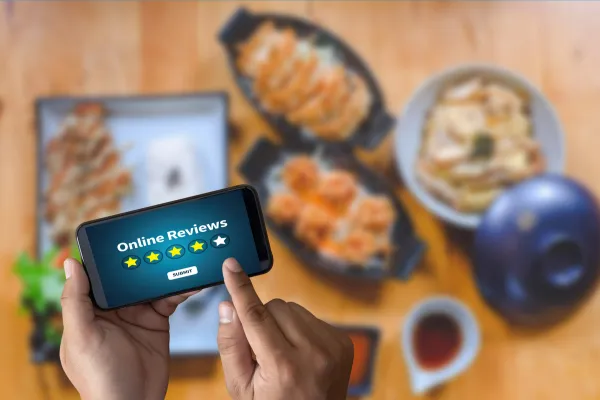
Top Strategies for Managing and Responding to Online Reviews
Online reviews play a crucial role in shaping your restaurant's reputation. Positive reviews attract new customers, while negative reviews deter potential diners. Effectively managing and responding to online reviews is essential for maintaining a positive image and fostering customer loyalty. Here are the top strategies for managing and responding to online reviews.
Monitor Reviews Regularly
Regularly monitor online review platforms such as Google My Business, Yelp, TripAdvisor, and social media. Set up alerts to notify you when new reviews are posted. Staying on top of reviews allows you to respond promptly and address any issues quickly.
Use tools like Google Alerts, ReviewTrackers, or Hootsuite to streamline your review monitoring process. These tools can help you stay informed and respond promptly.
Respond to All Reviews
Respond to all reviews, both positive and negative. Thank customers for their positive feedback and show appreciation for their support. For negative reviews, acknowledge the issue, apologize if necessary, and offer a solution. A thoughtful response demonstrates that you value customer feedback and are committed to providing excellent service.
Create templates for common responses to save time, but personalize each response to address the specific details mentioned in the review. This personal touch can significantly affect how your response is perceived.
Stay Professional and Courteous
Always maintain a professional and courteous tone when responding to reviews. Avoid getting defensive or engaging in arguments. Even if the review is unfair or exaggerated, reacting calmly and respectfully can help de-escalate the situation and show other readers that you handle feedback professionally.
Consider training your staff on handling online reviews. This ensures that everyone understands the importance of professionalism and can contribute to a positive online reputation.
Personalize Your Responses
Personalize your responses to show you genuinely care about each customer's experience. Use the customer's name and reference specific details from their review. Personalized responses make customers feel valued and appreciated.
For example, if a customer mentions a dish they enjoyed, respond with something like, "Thank you, Sarah! We're thrilled to hear you loved our Margherita pizza. We hope to see you again soon for more delicious meals."
Address Specific Concerns
When responding to negative reviews, address specific concerns mentioned by the customer. Explain, clarify, and detail your steps to resolve the issue if necessary. Providing a solution shows that you are proactive and willing to make improvements.
For example, if a customer complains about slow service, you might respond, "We're sorry to hear about your experience, John. We're working on improving our service speed and will ensure this doesn't happen again. We'd love to invite you back for a complimentary meal to make it up to you."
Encourage Positive Reviews
Encourage satisfied customers to leave positive reviews. You can ask them directly after a positive dining experience or through follow-up emails and social media. Positive reviews help build your restaurant's reputation and eliminate negative feedback.
Consider setting up a review generation system with printed cards with a QR code linking to your review page or a follow-up email campaign thanking customers for their visit and encouraging them to leave a review.
Learn from Feedback
Use feedback from online reviews to improve your restaurant. Address common themes or recurring issues mentioned in reviews. Showing that you are responsive to feedback and making positive changes can enhance customer satisfaction and loyalty.
Create a feedback loop where you regularly analyze reviews and share insights with your team. This can help everyone stay informed about customer perceptions and work together to make improvements.
Highlight Positive Reviews
Highlight positive reviews on your website and social media channels. Sharing positive feedback can build trust with potential customers and showcase your restaurant's strengths. Consider adding a testimonials page to your website or featuring quotes on the homepage.
Use tools like Canva to create visually appealing graphics featuring customer reviews. Share these graphics on social media profiles to highlight positive feedback and engage your audience.
Follow Up with Detractors
If a negative review warrants further action, consider following up with the customer directly. Reach out via email or phone to discuss their concerns in more detail and offer a resolution. Taking the conversation offline can help resolve issues more effectively and show that you are dedicated to customer satisfaction.
For example, you might send a follow-up email saying, "Hi [Customer's Name], we're sorry to hear about your recent experience at our restaurant. We'd love the opportunity to make things right. Could we have a quick chat to discuss this further?"
Conclusion
Effectively managing and responding to online reviews is crucial for maintaining a positive reputation and fostering customer loyalty. By monitoring reviews, responding thoughtfully, and using feedback to make improvements, you can enhance your restaurant's image and attract more customers.
Ready to improve your restaurant's reputation management? Partner with Bizzy Social for expert Reputation & Social Media Management, SEO, Custom Website Design, and more. Visit Bizzy Social to learn how we can help you grow your business.
See How Customers See Your Business Online
Get A Free Online Reputation Report Today!

Bizzy Social will assess your Google Business Profile, Social Media pages, and 50+ Business Directories to evaluate
your search rankings, online reviews, and overall online presence.
Then we create a comprehensive custom report showing ranking scores, search results, and how customers
see your business online and send it to your email.
Just fill out the form to get yours today. Go ahead, it's FREE!


Facebook
Instagram
LinkedIn